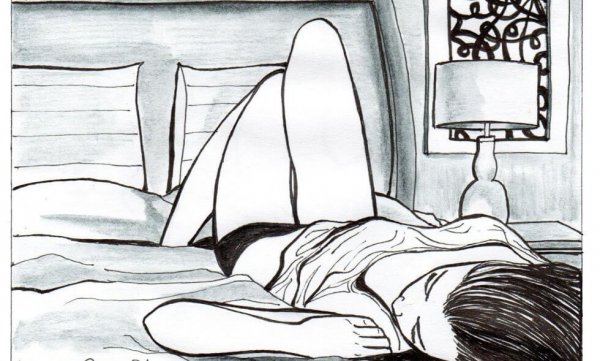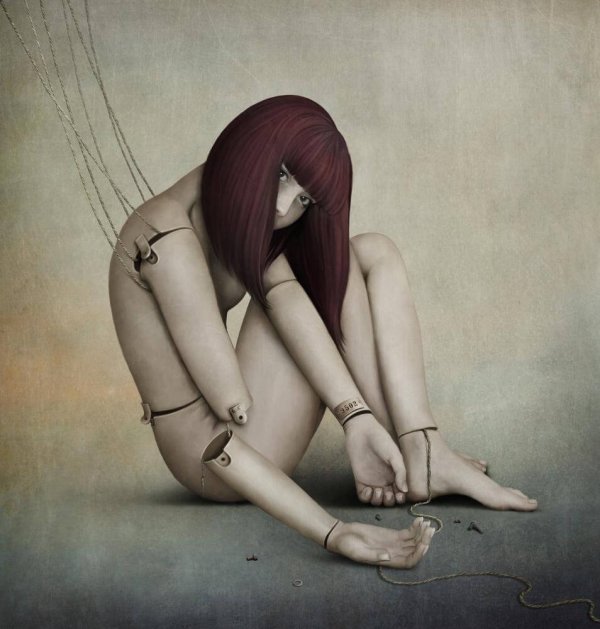Anuptaphobia: Pathological Fear of Not Finding a Partner

After dining with some female friends awhile ago, I realized something sad but undeniable: our get-togethers had stopped being fun. Some of these friends are single, some are married, and others have children, but it turns out we’re incapable of having a deep or entertaining conversation that doesn’t have to do with finding a partner or having children. We are incapable of planning something that’s just about enjoying each others’ company.
This wasn’t an isolated incident either. Suddenly, women I’ve always considered smart, fun, and independent were no longer interested in anything but “establishing themselves.” It wouldn’t be a problem, except that often finding a partner isn’t just a casual desire. It turns into an obsession, a requirement for living a full life.
That pathological fear of not finding a partner, of ending up alone, is called anuptaphobia.
The origin of anuptaphobia
The pressure to find a partner is a part of our world: the design of our society makes you want to find a partner and have kids. Traditionally, success meant committing to a suitable marriage and subsequently reproducing.
Although many people don’t consider reproduction as the main reason to partner up anymore, it can become a factor. When we get to a certain age, leisure time seems to drastically decrease. Many of our peers have found significant others and their time for chatting and having fun goes way down.
If there’s a time when both genders feel the need to be in a relationship it’d probably be when both individuals are in their 30’s. This is also when a woman’s desire to be in a relationship can turn pathological. The way people talk about the biological clock ticking only intensifies the burden they feel, especially for those who are already vulnerable and regularly inundated with questions about their love life.

Interpreting singleness
The process of finding a partner can be fun and happen naturally, or it can be a torturous process. And one line that separates one of these paths from the other is how people interpret and live their single lives.
There are people who don’t think of their singleness as a precursor for a relationship, but rather as just how life is. It’s not that these people want to be single, but they’re also not looking for a partner.
What they want is to be fulfilled and have a positive life. They believe that being in a relationship would just mean adding another positive thing to their lives: company, intimacy, affection. They don’t believe that being in a relationship is an absolute necessity for happiness.
Of course, others believe that being single is unnatural, socially limiting, and makes a person more susceptible to negative emotions. These people have internalized “recommendations” about their relationship status made by friends and family. They feel that being single is a social failure, proof that there’s something wrong with them.
Behavior of people with anuptaphobia
People with anuptaphobia are often anxious and obsessed with the idea of finding a partner. People who are closest to an individual with anuptaphobia suffer the most from this obsession. After all, any fun suggestion or activity they want to do won’t be good enough unless it involves trying to meet someone.
People with anuptaphobia have serious self-esteem problems. They may be the result of bad breakups, rejection, or abandonment by loved ones in childhood. Here are several tell-tale signs that a person is currently suffering from anuptaphobia…
Signs of anuptaphobia
- A victim mentality over being alone.
- Promiscuity and limiting behaviors.
- Categorizing the people around them according to their relationship status. Occasionally, people with anuptaphobia will be verbally aggressive or hurtful towards them.
- Questioning the emotional commitment of other people’s relationships. They judge especially harshly couples who aren’t publicly or formally committed to each other. They see these relationships as immature or empty.

- Going along with whatever their partner likes or thinks, afraid of them leaving.
- Seeing the concept of marriage and children as stability and security. They see it based on long-term commitment with someone, rather than a meaningful life project.
- Incapability of enjoying anything without the company of a partner.
- Once in a relationship, they are intent on showing people how happy they are.
It’s important to understand anuptaphobia as an irrational fear. The behaviors of a person with anuptaphobia are usually over the top when it comes to finding a partner. This tendency ends up causing more pain and dissatisfaction in all the people who feel like being in a relationship is the only way to find validation.
Being in a continuous, fruitless search for a partner results in a feeling of inadequacy and incompleteness. Searching for a partner in order to feel whole instead of doing so simply to increase your happiness is always the wrong path.
This text is provided for informational purposes only and does not replace consultation with a professional. If in doubt, consult your specialist.








